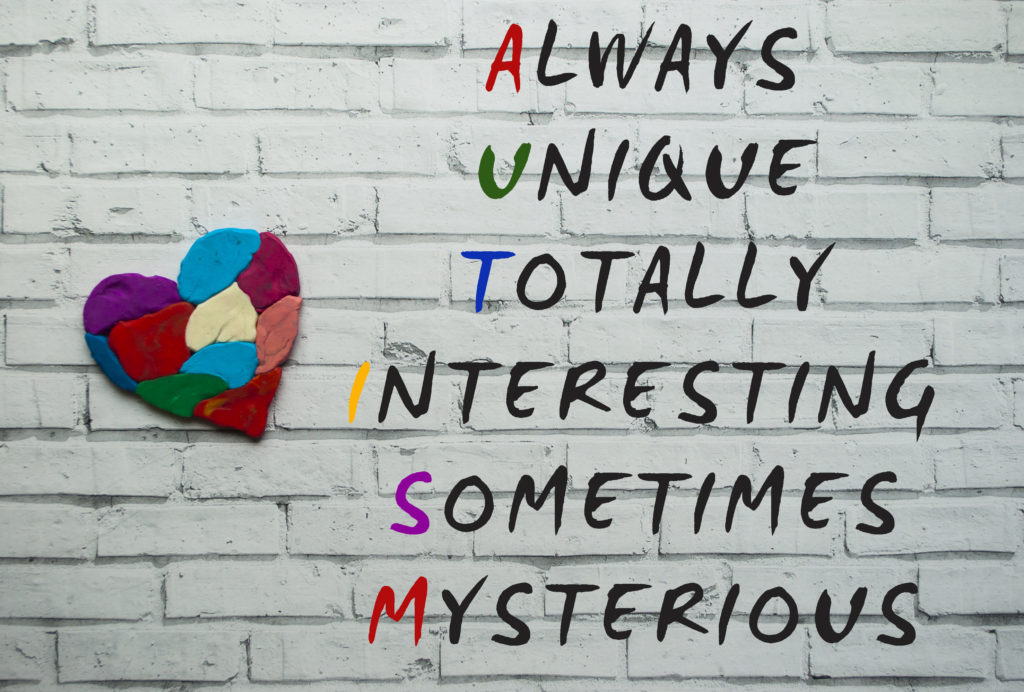
Autism has become a well-known diagnosis in recent years. Though some people seem to be against this sort of labelling, and the general increase in different label of mental conditions, a study out of the University of Portsmouth shows why this is actually a good thing.
What they found is that those who learned they were autistic when they were younger felt happier about their lives. This is probably due to many reasons – generally it is empowering because it clarifies how one is feeling and engages with the world. This enables them to find better ways to deal with this and also explain this to themselves and others. Not only that, but other resources may be available or the understanding of others such as teachers or peers at school.
However, though it is better to be diagnosed, and informed earlier, they also found that receiving a diagnosis in adulthood was also empowering and accompanied by a sense of relief. The takeaway is that getting a diagnosis is important and being informed of this, in a suitable way, of course, is also important.
Of note is that women, who are less often diagnosed, or minority groups, or non-binary individuals, respond more positively to the diagnosis. It also shows that getting a diagnosis (and support) is important to increase life outcomes for those with autism.
Reference:
Tomisin Oredipe, Bella Kofner, Ariana Riccio, Eilidh Cage, Jonathan Vincent, Steven K Kapp, Patrick Dwyer, Kristen Gillespie-Lynch.
Does learning you are autistic at a younger age lead to better adult outcomes? A participatory exploration of the perspectives of autistic university students.
Autism, 2022; 136236132210867
DOI: 10.1177/13623613221086700
More Quick Hits
When Stress Is Good For Brain Functioning
Quick HitsDaily brief research updates from the cognitive sciences tress gets a bad rap – understandably it is a negative experience and has been shown over long periods of time, and with high intensity, to cause multiple negative outcomes, from...
Put Your Smartphone Down and Let your Mind Wander – You’ll Be Happier
Quick HitsDaily brief research updates from the cognitive sciences here’s a lot been said about smartphone usage and how it can be used and abused. Most of this concern revolves around usage in children or teenagers, however, with some research...
The Amazing Impact Of Reaching Out To Your Old Friends
Quick HitsDaily brief research updates from the cognitive sciences few weeks ago a friend I hadn’t seen for about 10 years sent me a message and asked if I had time to meet up. I was elated. "Sure," I immediately messaged back, "when and where?!"...
Really? Belief In Conspiracies Not Increasing
Quick HitsDaily brief research updates from the cognitive sciences e may feel like we’re in an age of conspiracy theories, that social media is turbocharging the wild and wacky theories, and the so-called information bubbles are sending people down...
You Wake Up 100 Times Each Night – And That Helps Memory
Quick HitsDaily brief research updates from the cognitive sciences have written numerous posts and articles on sleep and the brain (review here), and the evidence is crystal clear. Good and consistent sleep is essential to all aspects of physical...
Only Three Factors Can Predict Mental Illness With 90% Accuracy
Quick HitsDaily brief research updates from the cognitive sciences here are multiple mental disorders that can afflict us human beings. And the assumption is that these are complex in nature and there are a multitude of paths to mental illness....
Cooperation Amongst Strangers Is On the Rise
Quick HitsDaily brief research updates from the cognitive sciences espite a belief in many that society is falling apart and becoming less caring and social this study proves the opposite. A study published by Yuan et al. with the American...
Brain Network For Social Attraction Identified
Quick HitsDaily brief research updates from the cognitive sciences umans do it. Birds do it. Fish do it. So do multitudes of other species. We flock together, come together, are attracted to our kind. We are a social species. But the question is...
The Brainwaves That Boost Creativity
Quick HitsDaily brief research updates from the cognitive sciences outlined here how recent research has shown that the brains of highly creative individuals use different networks, and this also reminded me of separate piece of research from a...
How Creative Brains Function Differently
Quick HitsDaily brief research updates from the cognitive sciences an you learn creativity? Well, you can learn anything, and you can certainly learn to be more creative. But the big question is do those people high in creativity have brains that...










